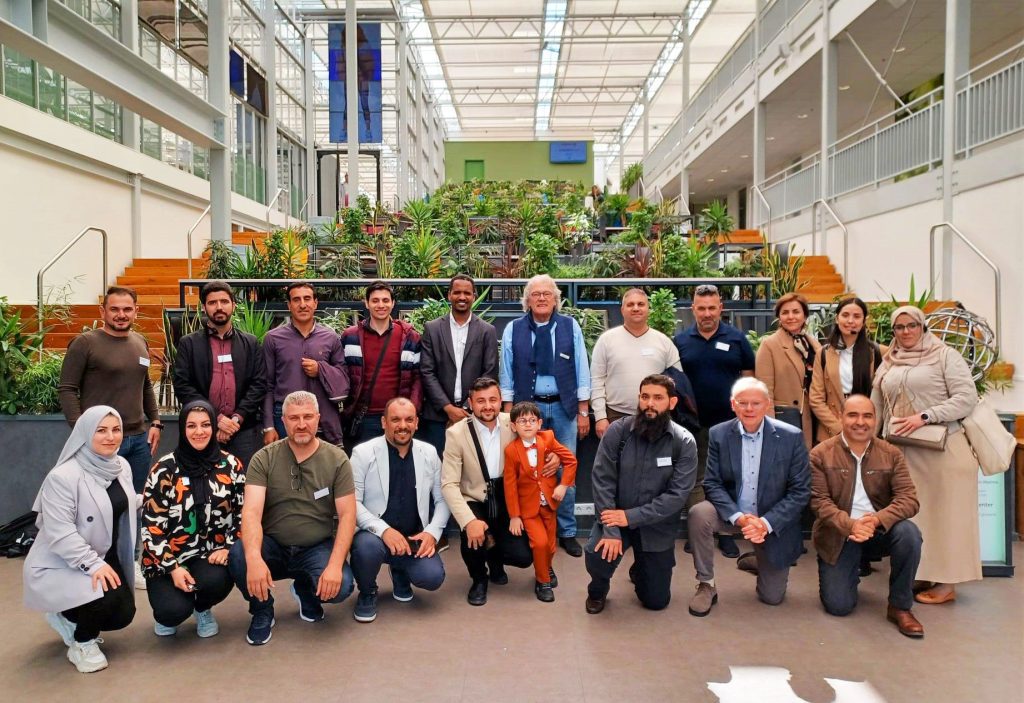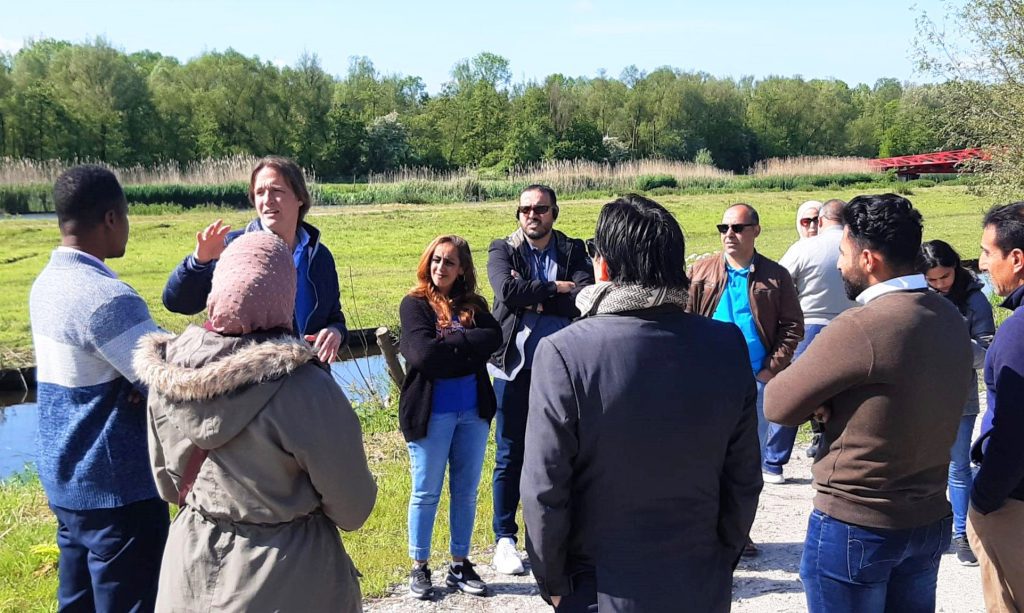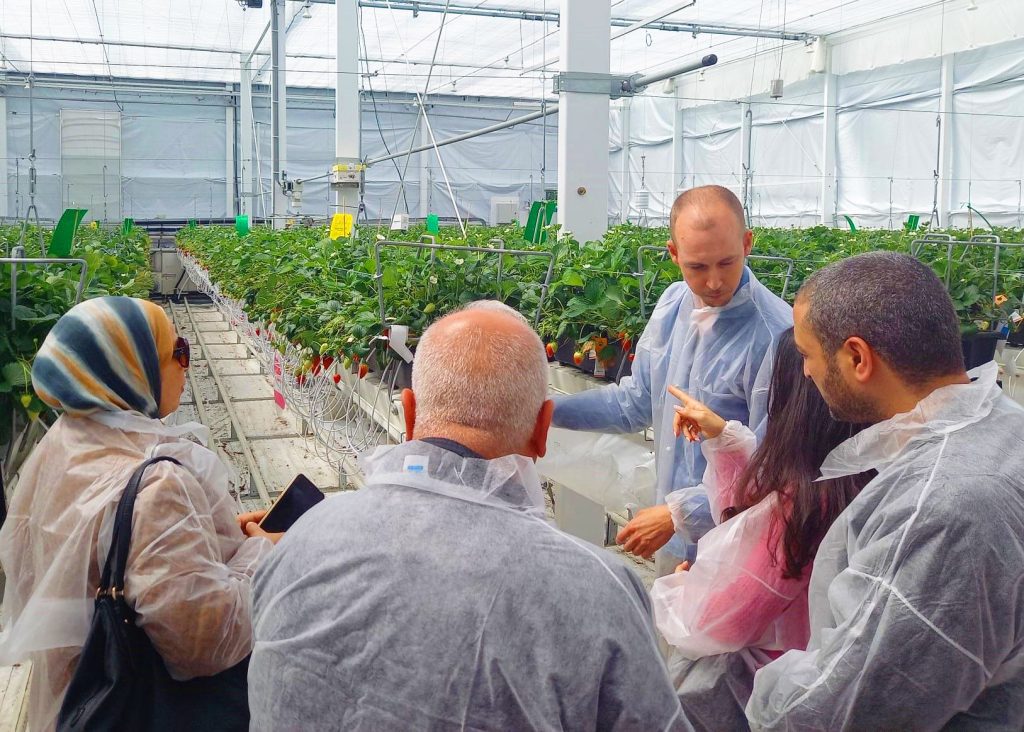In the face of climate change and the increasing unpredictability of water, one thing is becoming evident: water management is more important than ever before. The 2023 Shiraka Water Management Alumni Conference, facilitated by the Hague Academy, was an opportunity for practitioners and officials working on water resilience across the Middle East and North Africa (MENA) to have an open exchange with their counterparts in the Netherlands, like Dutch Water Authorities.

Today, about 90 per cent of all global disasters are water-related, and climate change will only keep intensifying the global water cycle. Both floods and droughts are becoming more frequent and severe. This time last year, Pakistan suffered from one of the most devastating flooding events in recorded history. But just a few months prior, Pakistanis experienced an extended drought and the highest recorded temperatures in over a hundred years.
In the Netherlands, even a nation famous for its centuries-old fight against flooding from the sea, where many aspects of its culture and governance revolve around keeping water out, has begun to worry about how it will keep water in. The Dutch experienced an unprecedented water shortage in 2021, 2022, and as groundwater levels remain low, many are worried that it will happen again in 2023.
Uneven rainfall, extreme temperatures, and an increasingly severe flood and drought cycle will affect all of us and will hit the world’s most vulnerable communities hardest. Water management plays a pivotal role in shaping the sustainability and resilience of communities around the world.
The 2023 Shiraka Conference: An Open Exchange
 As one participant put it, “One of the main strengths of the programme is trying to present some solutions to the problems in our country through exchange around the Dutch experience”.
As one participant put it, “One of the main strengths of the programme is trying to present some solutions to the problems in our country through exchange around the Dutch experience”.
While this was an opportunity to share water governance best practices for MENA partners, it was equally evident that those in the MENA region have plenty to teach the Netherlands about water scarcity. One takeaway from the course, experienced by all participants, is that climate change is a shared problem. Much like how keeping the dams standing and the water pumping out of the Netherlands required Dutch communities to work together for centuries, becoming resilient to the global ebb and flow of water will require collaboration and a clear vision among international and local actors.
In this spirit of open exchange, we share some lessons from the programme, namely on how we should approach water management together for the sake of our futures:
1) Empowering Communities
Ambitious water management begins with the active participation and empowerment of local actors. These actors, such as municipalities and regional water authorities, possess an intimate understanding of their communities’ needs and can implement context-specific solutions. By involving local stakeholders – like residents, businesses, and civil society organisations – in decision-making processes, water management strategies can better align with the community’s priorities and leverage their collective knowledge and expertise. Locally, it is also about encouraging water conservation, green infrastructure, and sustainable urban planning to reduce the strain on water resources and minimise the impact of extreme weather events.
2) Collaborative Solutions
Water management challenges often transcend national boundaries, emphasising the need for international cooperation. Ambitious water management entails fostering collaboration among countries, sharing knowledge, and jointly addressing shared water-related issues. Establishing multi-stakeholder platforms, involving government, civil society, academia, and private sector representatives, will foster collaborative decision-making processes and ensure diverse perspectives.
3) Adopting Innovative Best Practices
The Netherlands, with its extensive experience in managing water resources in a low-lying delta region, has actively engaged in international partnerships. It has shared its expertise, technologies, and strategies with countries facing similar challenges. The Green Village in TU Delft and the World Horti Center in Westland are prime examples of the Netherlands’ holistic system of integrated water management that adopts an integrated approach by combining flood risk management, spatial planning, and nature conservation.
4) Tailoring Solutions to Local Realities
While drawing inspiration from successful examples like the Netherlands, it is essential to recognise the importance of adapting water management strategies to suit local contexts. Each region faces distinct challenges, such as varying climates, hydrological conditions, and socioeconomic factors, which demand tailored solutions. Ambitious water management requires understanding local realities and engaging in continuous dialogue with stakeholders to design context-specific policies and practices.
 The Road to Effective Water Management
The Road to Effective Water Management
As our relationship with water changes with its increasing unpredictability, effective water management may remain at the forefront of our collaboration initiatives. Are you interested to know more about the Shiraka programme? Go here!
________
The Shiraka Training Programme (STP) is part of the Shiraka Programme, developed by the Netherlands Ministry of Foreign Affairs. The programme supports societal development in the MENA region and focuses on governments’ public service delivery for citizens, involving civilians in this process. The Hague Academy develops and leads training within the Shiraka programme, in several core areas. These training courses are designed for mid-career public officials and combine theory, practice, and site visits.
Related courses
We offer a diversity of courses throughout the year. Here are several other courses you might like.

